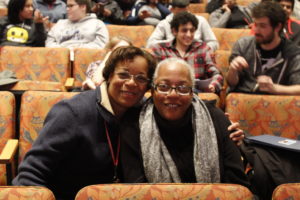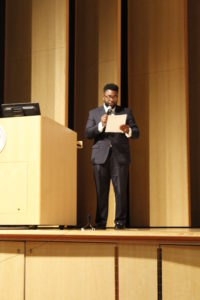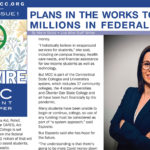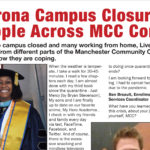College Hosts Educational Excellence for African Americans
By Christopher DiBella, Live Wire Staff Writer
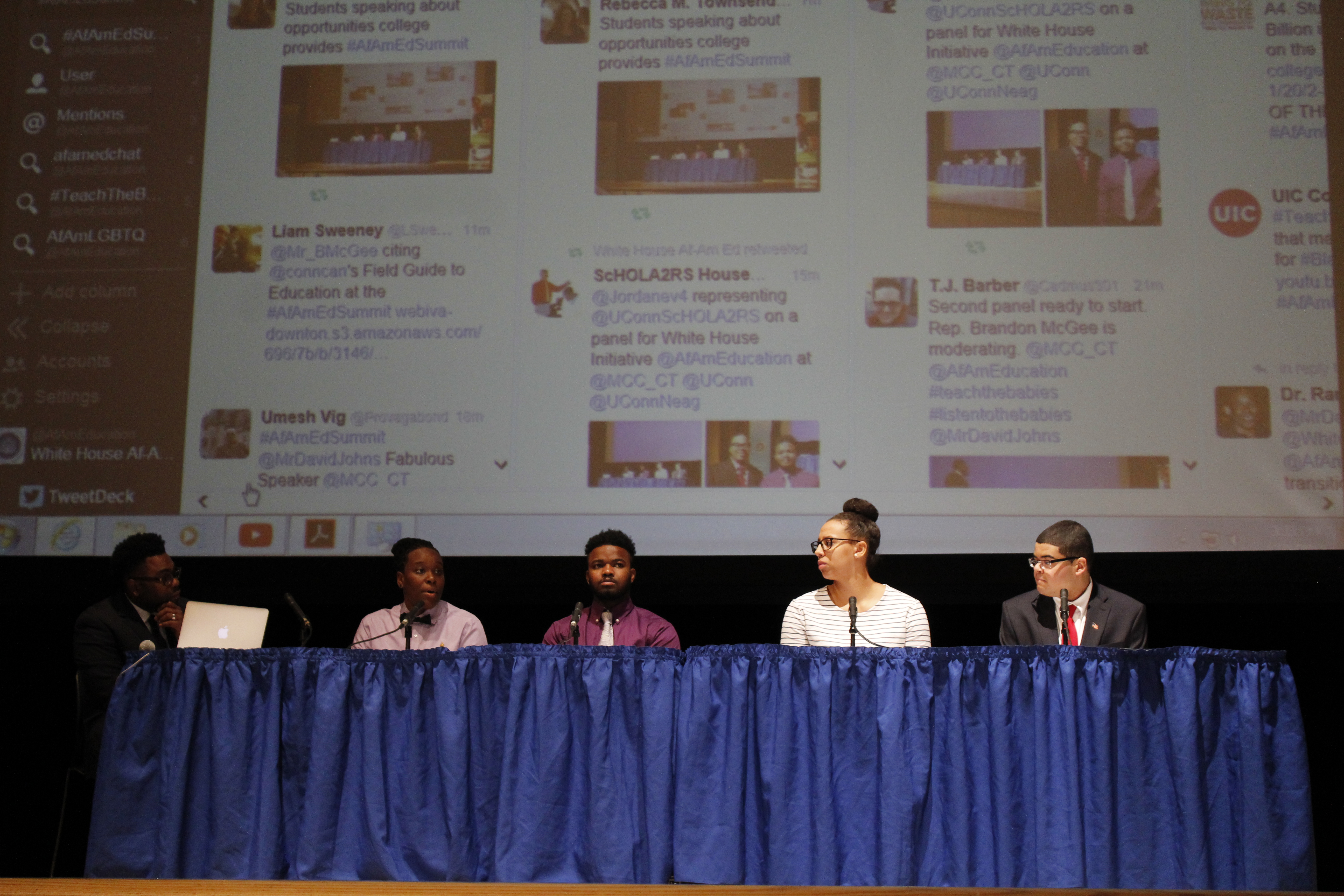
Pictured Left to Right: Moderator Brandon McGee, Brianna Nelson, Jordane Virgo, Lexis Foster, Tyler Madden. Photo by Chris DiBella.
On Monday, December 5, Manchester Community College hosted a White House Summit on Educational Excellence for African Americans in the SBM Charitable Foundation Auditorium from 1:00 to 5:00 p.m.
The summit featured two panel discussions by current high school and college students of color on their experiences with the current public education system and how it might be improved for future their African Americans brothers and sisters.
The event was attended by faculty members, students, doctors, professors and even a group of students from Great Path Academy; it was limited to the first 250 attendees.
“We are proud of you and we expect you not only to go to college, but to graduate,” said David J. Johns, executive director of the White House Initiative on Educational Excellence for African Americans, who addressed the GPA students sitting in the front rows.
The summit was also introduced by a pre-recorded video of John B. King Jr., acting secretary of Education.
The first panel discussion was moderated by Johns, and focused primarily on the climate of education for African American students, and how it could be improved. Panelists included Tariq Pittman of Manchester Community College, Tyra DeClaire of Great Path Academy middle college high school, Abdur Wali III from Gateway Community College and James Henderson Jr. of Central Connecticut State University.
During this panel, topics were addressed such as what was needed to feel safe and supported in school as an African American student, the challenges of being a black student, and what needs to be done within the culture to promote educational excellence.
“I need [teachers] who will process with me, not just for me” said Henderson during the first panel in response to a question on what was needed from teachers to assist with student learning.
Other responses to this question included requests for teachers who will have an investment in their students. DeClaire mentioned the need for teachers who look like her and have been through the same issues she has.
The second panel was focused on cultivating success and sustainable career pathways that assist in African American student achievement moderated by Brandon McGee, Connecticut State Representative of District 5.
Panelists included students Brianna Nelson of Manchester Community College, Jordane Virgo from University of Connecticut, Lexis Foster of Eastern Connecticut State University, and Tyler Madden of Manchester High School.
During the second panel, panelists discussed the necessity and impact of positive role models on African American students, the ability of schools to prepare students for the work force, and what elements made the panelists exemplary students.
Virgo mentioned the need for the right information to be given in high school on how important education is and what college will be like in comparison. Much focus was also given to the importance of mentors, a supportive community, and options outside of classes to help find a career field before students graduate.
“The summit is designed to accomplish two goals,” said Johns before the event, in an interview with editor-in-chief James Lancy when asked about what the summit was intended to accomplish.
“The first is to center and to celebrate the experiences of the experts. The students who will sit on the panel today will be asked to talk about their experiences and make recommendations on the things that carry a concern of [the community],” Johns said.
“The second thing is to is to ensure the campus community is working together to respond to those things the experts will identify” said Johns.
“They are actually listening to us this time, it’s a bit of a role reversal” said Madden during the interview.
“That’s the biggest thing I am looking to accomplish out of this, is to start a dialog between the students and teachers, and the different administrators.”


